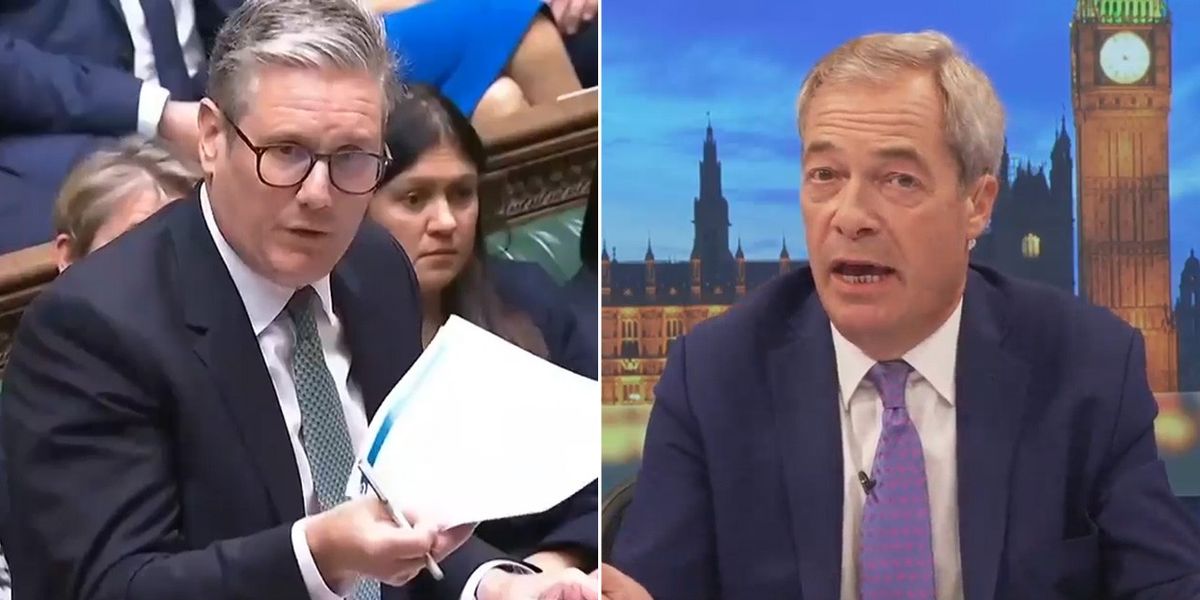The Clash in Parliament: Nigel Farage vs. Sir Keir Starmer on Two-Tier Policing
In a heated session of Prime Minister’s Questions, Nigel Farage, the leader of Reform UK, took the opportunity to challenge Prime Minister Sir Keir Starmer on a pressing issue that has been stirring public sentiment: the concept of "two-tier policing" in Britain. This confrontation unfolded against the backdrop of the government’s controversial decision to release prisoners early, raising questions about public safety and the effectiveness of the justice system.
The Context of Two-Tier Policing
Farage’s inquiry was rooted in a growing perception among the British public that the policing system is becoming increasingly unequal. He articulated the "growing feeling of anger" that many citizens are experiencing, suggesting that the justice system is failing to treat all individuals equally, particularly in light of recent policy changes that allow for the early release of prisoners. This sentiment resonates with many who feel that the justice system is not adequately addressing crime and public safety.
Starmer’s Response: A Shift of Blame
Instead of addressing Farage’s concerns directly, Prime Minister Starmer redirected the conversation towards former Prime Minister Rishi Sunak, attributing the current crisis in the prison system to the Conservative government’s failures. Starmer expressed his frustration at being forced to release individuals who he believes should remain incarcerated, citing a lack of prison spaces as a significant issue that has been neglected by the previous administration.
Starmer stated, "I’m angry to be put in a position of having to release people who should be in prison, because the last government broke the prison system." He emphasized that police chiefs had warned Sunak about the impending crisis, indicating that the Conservative government had ample opportunity to act but chose to delay necessary reforms.
Farage’s Take: Enjoying the Fray
Following the exchange, Farage reflected on Starmer’s evasive response, noting that he had anticipated such a reaction. He expressed a sense of nostalgia for the raucous atmosphere of the Commons, likening it to his experiences in the European Parliament. "All those Labour MPs screaming and shouting at me, gosh, it felt like being back in the European Parliament. I really rather enjoyed it," he quipped.
However, Farage did not shy away from the serious implications of the discussion. He acknowledged Starmer’s point regarding the inadequacy of prison construction under the previous government, agreeing that the rapid population growth necessitated a more robust prison infrastructure.
The Serious Implications of Early Release
Despite the lighthearted tone, Farage raised a critical concern regarding the implications of early prisoner release. He questioned the rationale behind allowing individuals to serve only a fraction of their sentences, stating, "What is the point of a sentence if people are let out after only serving 40 percent of it?" This question strikes at the heart of public concerns about recidivism and the effectiveness of the justice system in deterring crime.
Farage highlighted a particularly alarming case of a recently released individual with a staggering 109 previous convictions, suggesting that such a person is likely to reoffend. This example underscores the potential risks associated with early release policies and raises questions about the criteria used to determine which prisoners are eligible for release.
Conclusion: A Divided Landscape
The exchange between Farage and Starmer encapsulates the broader debate surrounding policing and criminal justice in the UK. As the government grapples with the challenges of prison overcrowding and public safety, the concept of two-tier policing remains a contentious issue. With both sides of the political spectrum pointing fingers at one another, the question remains: how can the UK effectively address these pressing concerns while ensuring justice and safety for all citizens?
As public sentiment continues to evolve, the implications of these discussions will undoubtedly shape the political landscape in the lead-up to future elections. The dialogue around policing, justice, and public safety is far from over, and it will be crucial for leaders to engage meaningfully with these issues to restore public confidence in the system.
